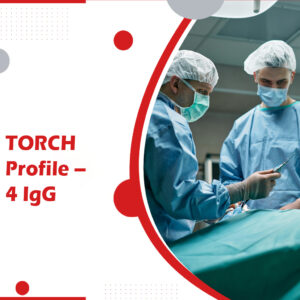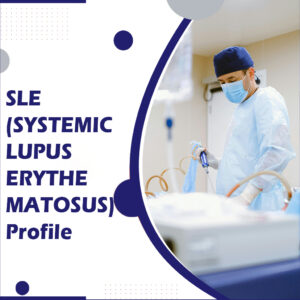Infertility
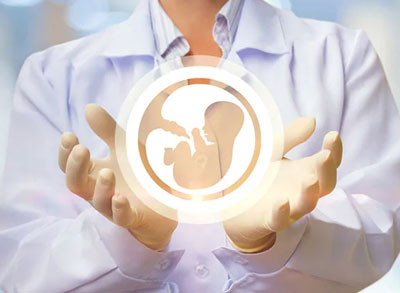
Tests for men
Male fertility requires that the testicles produce enough healthy sperm, and that the sperm is ejaculated effectively into the vagina and travels to the egg. Tests for male infertility attempt to determine whether any of these processes are impaired.
You may have a general physical exam, including examination of your genitals. Specific fertility tests may include:
- Semen analysis. Your doctor may ask for one or more semen specimens. Semen is generally obtained by masturbating or by interrupting intercourse and ejaculating your semen into a clean container. A lab analyzes your semen specimen. In some cases, urine may be tested for the presence of sperm.
- Hormone testing. You may have a blood test to determine your level of testosterone and other male hormones.
- Genetic testing. Genetic testing may be done to determine whether there’s a genetic defect causing infertility.
- Testicular biopsy. In select cases, a testicular biopsy may be performed to identify abnormalities contributing to infertility or to retrieve sperm for assisted reproductive techniques, such as IVF.
- Imaging. In certain situations, imaging studies such as a brain MRI, transrectal or scrotal ultrasound, or a test of the vas deferens (vasography) may be performed.
- Other specialty testing. In rare cases, other tests to evaluate the quality of the sperm may be performed, such as evaluating a semen specimen for DNA abnormalities.
Tests for women
Fertility for women relies on the ovaries releasing healthy eggs. The reproductive tract must allow an egg to pass into the fallopian tubes and join with sperm for fertilization. The fertilized egg must travel to the uterus and implant in the lining. Tests for female infertility try to find out if any of these processes are impaired.
You may have a general physical exam, including a regular gynecological exam. Specific fertility tests may include:
- Ovulation testing. A blood test measures hormone levels to determine whether you’re ovulating.
- Hysterosalpingography. Hysterosalpingography (his-tur-o-sal-ping-GOG-ruh-fee) evaluates the condition of your uterus and fallopian tubes and looks for blockages or other problems. X-ray contrast is injected into your uterus, and an X-ray is taken to determine if the cavity is normal and to see if the fluid spills out of your fallopian tubes.
- Ovarian reserve testing. This testing helps determine the quantity of the eggs available for ovulation. This approach often begins with hormone testing early in the menstrual cycle.
- Other hormone testing. Other hormone tests check levels of ovulatory hormones, as well as pituitary hormones that control reproductive processes.
- Imaging tests. Pelvic ultrasound looks for uterine or ovarian disease. Sometimes a sonohysterogram, also called a saline infusion sonogram, is used to see details inside the uterus that are not seen on a regular ultrasound.
Depending on your situation, rarely your testing may include:
- Hysteroscopy. Depending on your symptoms, your doctor may request a hysteroscopy to look for uterine disease. During the procedure, your doctor inserts a thin, lighted device through your cervix into your uterus to view any potential abnormalities.
- Laparoscopy. This minimally invasive surgery involves making a small incision beneath your navel and inserting a thin viewing device to examine your fallopian tubes, ovaries and uterus. A laparoscopy may identify endometriosis, scarring, blockages or irregularities of the fallopian tubes, and problems with the ovaries and uterus.
Not everyone needs to have all, or even many, of these tests before the cause of infertility is found. You and your doctor will decide which tests you will have and when.
Basic Tests
Thyroid-stimulating Hormone (TSH) Blood Test
The Thyroid-stimulating Hormone (TSH) Blood Test checks thyroid gland function.
Estradiol (E2) Blood Test
The Estradiol (E2) Blood Test measures estradiol levels, one of the primary components of estrogens, in the blood.
Testosterone Total Serum Test
Testosterone testing is used in the evaluation of androgen excess or deficiency related to gonadal function, adrenal function, or tumor activity in men and woman. Testosterone is believed to play an important role in bone and muscle strength and libido in women.
Progesterone Blood Test
The Progesterone Blood Test helps determine the cause of infertility in men and women, track ovulation, and help diagnose an ectopic or failing pregnancy.
Testosterone Free (Direct) and Total Testosterone Te…
A Testosterone Free (Direct) and Total Testosterone Test determines the level of free and total testosterone.
Free T3 and Free T4 Blood Test Panel
Free Tri-iodothyronine (T3) Serum and Thyroxine (T4) Free Direct Serum.
Prolactin Serum Test
The Prolactin Test is the first test for the work-up of galactorrhea (inappropriate lactation) also useful in the diagnosis of headaches and visual disturbances.
Thyroid Peroxidase Antibodies (TPO) Blood Test
A TPO Blood Test provides a differential diagnosis of hypothyroidism and thyroiditis.
Dehydroepiandrosterone Sulfate (DHEA-S) Blood Test
A DHEA-S Blood Test determines adrenal gland function.
Insulin-like Growth Factor (IGF-1) Blood Test
A IGF-1 Blood Test is ordered to help diagnose the cause of growth abnormalities and to evaluate pituitary function.
Follicle-stimulating Hormone (FSH) and Luteinizing H…
FSH and LH tests for infertility in both men and women.
Thyroxine (T4) Free Direct Serum Test
A T4 Free Direct Serum Test is ordered to help in evaluating thyroid gland function.
Parathyroid Hormone (PTH) Intact Blood Test
A PTH Intact Blood Test diagnoses parathyroid disease and other diseases of calcium homeostasis; monitoring patients undergoing renal dialysis.
Sex Hormone Binding Globulin (SHBG) Serum Test
The SHBG Serum Test helps in evaluating the status of a patient’s androgens (male hormones).
Cortisol Blood Test, AM
A Cortisol Blood Test measures the level of the hormone cortisol in the blood in the morning is when cortisol is at its peak.
Cortisol Blood Test, Random Serum
This Cortisol Blood Test detects excess or deficient cortisol production.
Estrogens Blood Test, Total
An Estrogens Blood Test is ordered to test for hormone imbalance in women and men.
Dihydrotestosterone (DHT) Blood Test, LC/MS
A Dihydrotestosterone (DHT) Blood Test, LC/MS checks dihydrotestosterone levels.
Adrenocorticotropic Hormone (ACTH) Blood Test
The ACTH blood test evaluates symptoms associated with excess or deficient cortisol.
Tri-iodothyronine (T3) Blood Test
The T3 Blood Test is ordered to help in evaluating thyroid gland function and in the diagnosis of hyperthyroidism.
Iodine Blood Test
An iodine blood test monitors exposure to iodine; evaluate for iodine deficiency disorders (IDDs), excessive iodine intake, or iodine in the workplace.
Estradiol (E2) Blood Test, Sensitive, LC/MS-MS
The E2 Blood Test, Sensitive, LC/MS-MS, This sensitive estradiol assay is designed for the investigation of infertility.
Prostate-specific Antigen (PSA) Hormone Blood Test P…
PSA plus Testosterone Total & Free and Estradiol.
Testosterone Free (Direct) Serum Test
A Testosterone Free (Direct) Serum Test is used in evaluation of hirsutism and masculinization in women and evaluation of testicular function in men.
Testosterone Total Blood Test, Male Only
The Testosterone Total Blood Test, Male Only measures Testosterone levels in the blood
Follicle-stimulating Hormone (FSH) Blood Test
The FSH Blood Test is often used in conjunction with other tests in the workup of infertility in both men and women.
Human Growth Hormone (HGH) Serum Test
Pituitary function test useful to diagnose hypothalamic disorder, hypopituitarism, acromegaly, and ectopic growth hormone production by neoplasm.
Thyroxine (T4) Blood Test
The Thyroxine Blood Test is a thyroid function test.
Anti-Mullerian Hormone (AMH) Serum Test
An AMH Serum Test is used in evaluating ovarian function and fertility issues in women.
Testosterone Free (Dialysis) and Total Testosterone …
The testosterone free (dialysis) and total testosterone test determines the level of free and total testosterone. The levels reported for this test are determined using different methodologies than the normal free and total testosterone tests.
Pregnenolone Blood Test, LC/MS-MS (Endocrine Science…
A Pregnenolone Blood Test measures the level of pregnenolone in your blood.
Estrone (E1) Blood Test
An Estrone (E1) Blood Test measures estrone levels of the blood in women.
Testosterone Replacement Therapy (TRT) Blood Test Pa…
A TRT Blood Test Panel includes: Complete Blood Count, PSA Serum Total, Testosterone Total & Free.
Thyroid Antithyroglobulin Antibody (TAA) Blood Test
A Thyroid Antithyroglobulin Antibody (TAA) Blood Test helps diagnose an autoimmune thyroid disease and separate it from other forms of thyroiditis.
Leptin Blood Test
The Leptin test measures the amount of leptin in your blood and is used to figure body fat amount.
Cortisol Blood Test, PM
A Cortisol Blood Test measures the level of the hormone cortisol in the blood.
Luteinizing Hormone (LH) Serum Test
The Luteinizing Hormone Serum Test measures luteinizing hormone that is produced by the pituitary gland.
Aldosterone Blood Test, LC-MS
The aldosterone blood test is used to evaluate patients with hypertension and for the possibility of hyperaldosteronism.
Melanocyte-stimulating Hormone (MSH) Blood Test
A melanocyte-stimulating Hormone Blood Test is used to evaluate the levels of MSH in the blood. It controls the production of hormones, modulates the immune system, and controls nerve function, too.
Thyroid-stimulating Immunoglobulin (TSI) Blood Test
The TSI Blood Test aids in the diagnosis of autoimmune disorders which affect the Thyroid
17-Hydroxyprogesterone Blood Test, LC/MS-MS
A 17-hydroxyprogesterone blood test, LC/MS-MS is used to screen for, detect, and monitor treatment for congenital adrenal hyperplasia (CAH); sometimes to help rule out other conditions with similar symptoms.
Estriol (E3) Blood Test
An Estriol (E3) Blood Test evaluates fetal distress and placental function.
Dopamine Blood Test
A Dopamine Blood Test is useful in the measuring the amount of dopamine in the blood.
PTH Antibody Blood Test
This PTH Antibody Blood Test is used to help evaluate autoimmune disorders involving parathyroid gland that may result in the production of anti-PTH & hypo-parathyroidism.
- In about one-third of cases, there is an issue with the man
- In about one-third of cases, there is an issue with the woman
- In the remaining cases, there are issues with both the man and the woman, or no cause can be found
What are the main causes of infertility in men?

Low Sperm Count
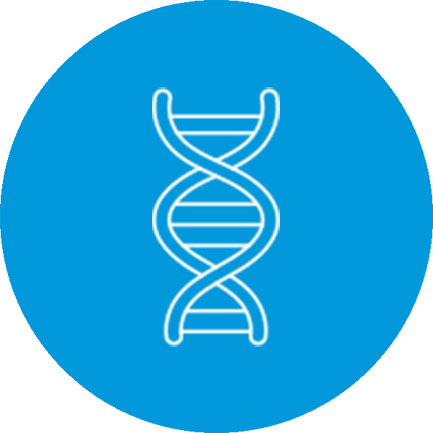
Genetic Disorders

Hormonal Disorders

Age

Varicoceles

Low Sperm Motility

Obesity

Hypospadias

Alcohol Consumption

Medical condition

Abnormal Sperm

Smoking
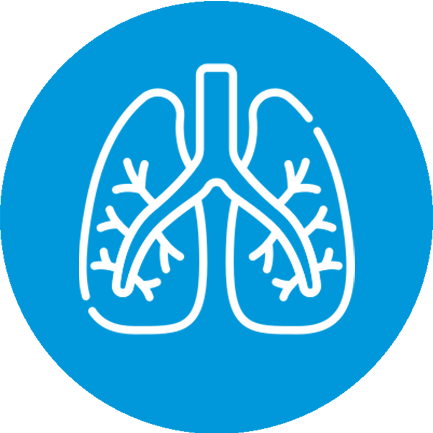
Cystic Fibrosis

Radiation Therapy
Low Sperm Count: A sperm count of under 15 million is considered low.
Low Sperm Motility: In this case, the sperm is not able to reach the egg.
Abnormal Sperm: The sperm may have an unusual shape, making it harder to move and fertilise an egg.
Medical condition: e.g. testicular infection, cancer, cushings syndrome, diabetes, thyroid disease.
Genetic disorders: e.g. Klinefelter's syndrome, Myotonic dystrophy may cause no sperm to be produced, or low numbers of sperm to be produced.
Hypospadias: The urethral opening is under the penis making it harder for the sperm to get to the female's cervix.
Cystic Fibrosis: A chronic disease that results in the creation of sticky mucus and males may also have a missing or obstructed vas deferens. The vas deferens carries sperm from the epididymis to the ejaculatory duct and urethra.
Radiation Therapy: It can impair sperm production.
Age: Male fertility starts to fall after 40 years.
Alcohol Consumption: It may lower male fertility.
Obesity: It may reduce the chances of conceiving.
Smoking: Smoking significantly increases the risk of infertility in both men and women.
Varicoceles: A condition in which the veins in the testicles are large and cause them to overheat. The heat may affect the number or shape of the sperm.
Hormonal Disorders: Improper function of the hypothalamus or pituitary glands may result in low or no sperm production.
What are the main causes of infertility in women?

Age

Obesity

Diet

Submucosal Fibroids

Alcohol Consumption

Tubal Infection

Mental Stress

Radiation Therapy

Smoking

Endometriosis
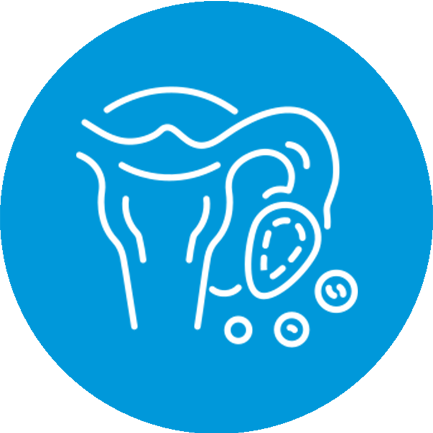
Ovulation Disorders

Autoimmune disorders
Age: The ability to conceive starts to fall around the age of 32 years.
Smoking: Smoking significantly increases the risk of infertility in both men and women. Smoking during pregnancy increases the chance of pregnancy loss. Passive smoking has also been linked to lower fertility.
Alcohol consumption: It can affect the chances of conceiving.
Obesity: It may reduce the chances of conceiving.
Diet: A lack of folic acid, iron, zinc, and vitamin B-12 in the diet can affect fertility.
Mental stress: This may affect female ovulation and can lead to reduced sexual activity.
Ovulation disorders: Ovulation disorders are the most common cause of infertility in women and can be due to:
Radiation Therapy: It can impair sperm production.
Polycystic ovary syndrome (PCOS): A condition that causes women to not ovulate, or ovulate irregularly.
Diminished ovarian reserve (DOR): A condition in which fewer eggs are remaining in the ovaries than normal. The number of eggs a woman has declines naturally as a woman ages.
Functional hypothalamic Amenorrhea (FHA): A condition when the menstrual cycle and ovulation are disrupted due to the hypothalamus not working properly.
Primary ovarian insufficiency (POI): A condition sometimes referred to as premature menopause, occurs when a woman's ovaries fail before she is 40 years of age.
Menopause: An age-appropriate decline in ovarian function that usually occurs around age 50. By definition, a woman in menopause has not had a period in one year.
Poor egg quality: Eggs that are damaged or develop genetic abnormalities cannot sustain a pregnancy.
Hyperprolactinaemia: If prolactin levels are high, and the woman is not pregnant or breastfeeding, it may affect ovulation and fertility.
Thyroid problems: An overactive or underactive thyroid gland can lead to a hormonal imbalance.
Submucosal fibroids: Hyperprolactinaemia Benign or non-cancerous tumours occur in the muscular wall of the uterus preventing sperm from fertilising the egg.
Endometriosis: A condition in which the type of tissue that forms the lining of the uterus is found outside the uterus. Inflammation from endometriosis may damage the sperm or egg or interfere with their movement through the fallopian tubes and uterus. In severe cases of endometriosis, the fallopian tubes may be blocked by adhesions or scar tissue.
Tubal Infection: Also known as Fallopian Tube Infection, is caused by unwarranted and excessive growth of malignant bacteria in the fallopian tubes. Some of the bacteria causing the tubal infection include Streptococcus, Mycoplasma, and Staphylococcus. The disease can also be caused by sexually transmitted diseases (STDs) e.g. Chlamydia, Gonorrhea, etc.
Radiation therapy: It can increase the risk of fertility problems.
Autoimmune disorders: Autoimmune disorders cause the body's immune system to attack normal body tissues that it would normally ignore. Autoimmune disorders, such as lupus, Hashimoto's and other types of thyroiditis, or rheumatoid arthritis, may affect fertility.
Infertility Tests / Packages

What are the risk factors linked to Infertility?
Ages: Women's fertility gradually declines with age. As a man ages, the number of sperm decreases, along with sperm motility, thus reducing the chances of pregnancy occurring. Other age-related problems include low testosterone and prostate, erectile, or ejaculation problems.
Tobacco uses: Smoking may reduce the likelihood of pregnancy. Miscarriages are more frequent in women who smoke. Smoking can also increase the risk of erectile dysfunction and a low sperm count in men.
Alcohols: Alcohol use may contribute to infertility. For men, heavy alcohol use can decrease sperm count and motility.
Obesitys: An inactive lifestyle and being overweight may increase the risk of infertility.
Mental Healths: Depression and stress can affect the hormones that regulate the reproductive cycle. Women dealing with these issues may not ovulate normally and men may have a lower sperm count.
Tips for Improving Fertility?

Get Regular Exercise

Avoid Illicit Drugs and Tobacco

Maintain a Healthy Lifestyle

Avoid Exposure to Environmental Toxins

Avoid Medicines that may affect fertility

Consume Alcohol in moderation or avoid it
Maintain a healthy weight and eat a healthy, well-balanced diet.
Avoid illicit drugs and tobacco.
Consume alcohol in moderation or avoid it entirely.
Get regular exercise at a moderate level of intensity.
Avoid exposure to industrial or environmental toxins.
Avoid medicines that may affect fertility.
How is Infertility diagnosed?
Luteinising Hormone (LH)
Luteinising hormone (LH) is a hormone associated with reproduction. This test measures the amount of luteinising hormone in the blood and is used to help diagnose the cause of infertility.
Prolactin
Prolactin is a hormone whose primary role is to promote breast milk production (lactation). This test measures the amount of prolactin in the blood and may be used, along with other hormone tests in the evaluation of Pituitary tumours, Amenorrhoea, Galactorrhoea, Infertility & Hypogonadism.
Follicle-stimulating Hormone (FSH)
Follicle-stimulating hormone (FSH) is a hormone associated with reproduction and the development of eggs in women and sperm in men. This test measures FSH in the blood and helps in the evaluation of menstrual irregularities, hypogonadism, infertility and helps in diagnosing pituitary disorders.
Estradiol E2
Oestrogens are a group of steroids that are responsible for the development and function of reproductive organs and the formation of secondary sex characteristics in women. They are also found in men and play a role in bone metabolism and growth in both sexes. This test is used to detect a deficiency or excess in a woman. In a man, Oestrogens testing may be performed to detect a hormone excess and its cause.
Progesterone
Progesterone is a steroid hormone with the main role to help prepare a woman's body for pregnancy. This test measures the level of progesterone in the blood and is useful for ascertaining whether ovulation occurred in a menstrual cycle. It also helps to evaluate placental function in pregnancy.
Semen Analysis
This test helps in determining male fertility status. It consists of a series of tests that evaluate the quality and quantity of the sperm as well as the semen, the fluid that contains them.
Testosterone, Total
Testosterone is the main sex hormone in men, produced mainly by the testicles, and is responsible for male physical characteristics. It is present in the blood of both males and females. The testosterone test may be used to help evaluate conditions such as:
Delayed or early puberty in boys
Decreased sex drive in men and women
Erectile dysfunction in men
Infertility in men and women
Testicular tumours in men
Hypothalamus or pituitary disorders
Hirsutism and virilisation in girls and women
Sex Hormone Binding Globulin (SHBG)
Sex hormone binding globulin (SHBG) is a protein produced by the liver that transports the hormones testosterone, dihydrotestosterone (DHT), and oestradiol in the blood as biologically inactive forms. This test measures the level of SHBG in the blood and may be used to help evaluate men for low testosterone and women for excess testosterone production.
Anti Mullerian Hormone (AMH)
Anti-Mullerian hormone (AMH) is a hormone produced by reproductive tissues, including the testicles in males and the ovaries in females. This test measures AMH in the blood and used to assess ovarian function and menopausal status, evaluation of PCOS in women. It is also used to evaluate the presence of external sex organs that are not male or female in an infant and/or function of the testicles in an infant boy.
Hysterosalpingography
Fluid is injected into the woman's uterus and X-rays are taken to determine whether the fluid travels properly out of the uterus and into the fallopian tubes. If a blockage is present, surgery may be necessary.
Other Imaging Procedures
Imaging techniques may be used to determine physical problems preventing proper fertilisation or maintenance of a normal pregnancy. The tests performed depends on case to case.










